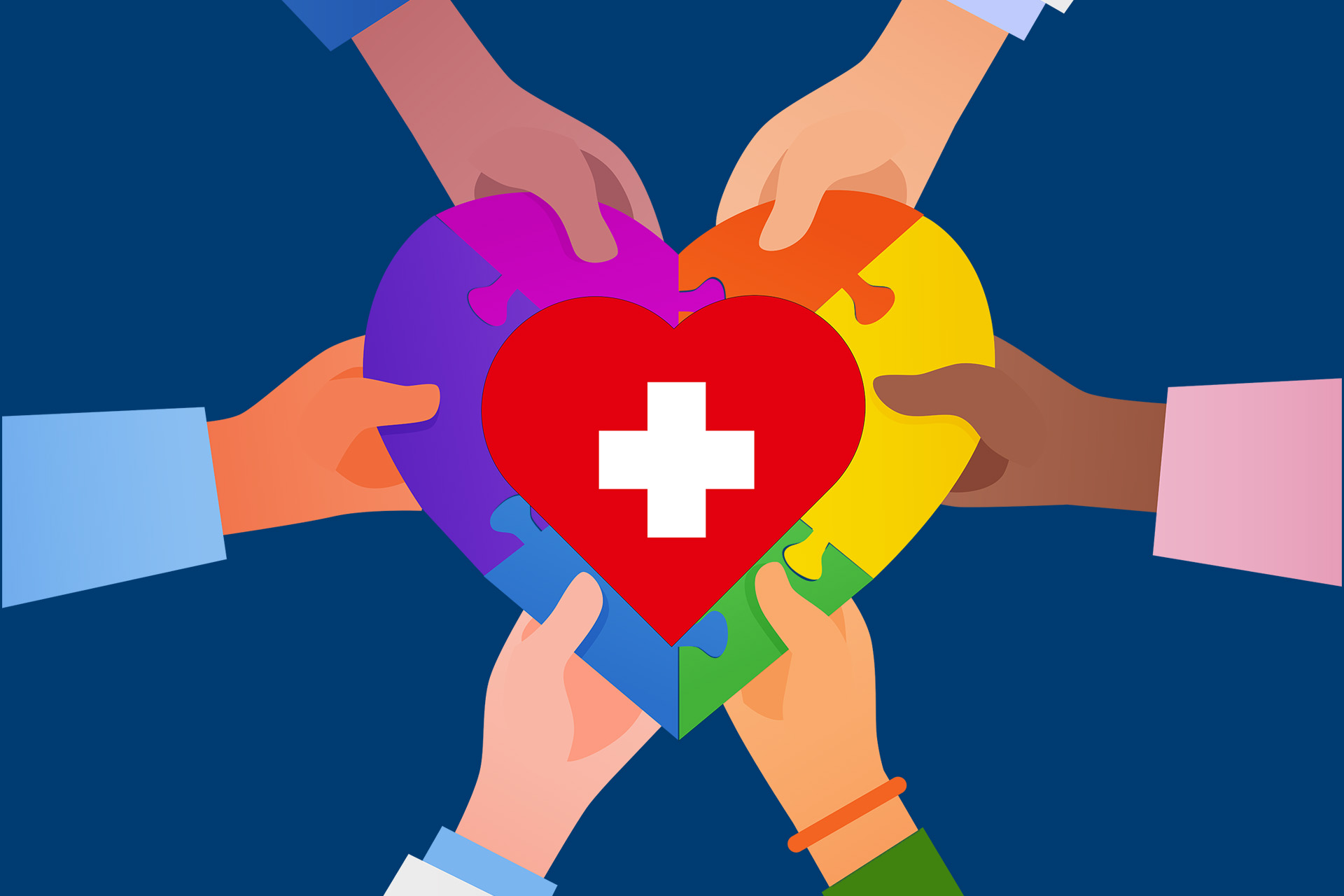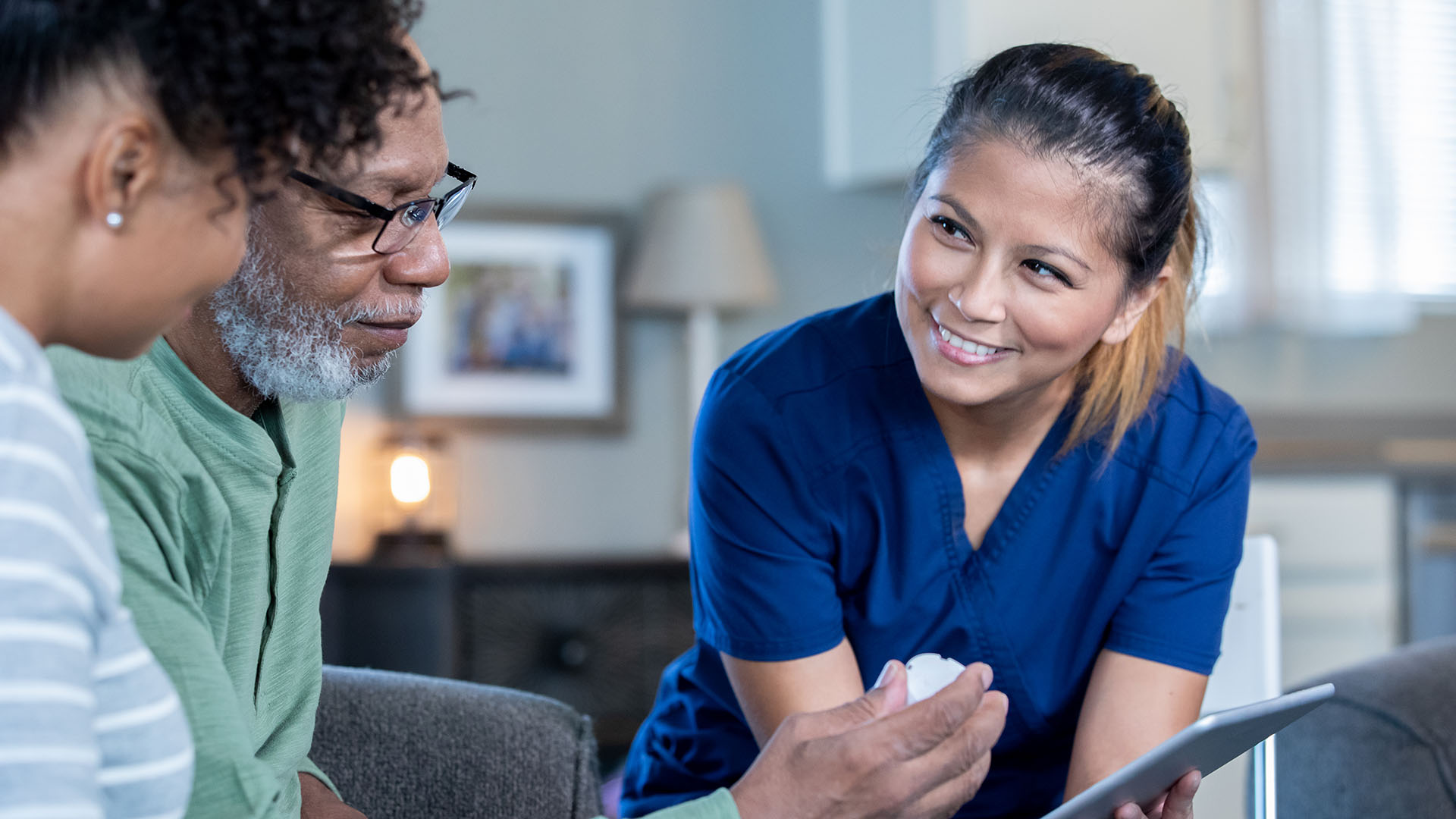New findings examined successful outreach efforts to increase cancer screenings in Northern California

Family medicine physician Raj Sundar, MD, created the "Healthcare for Humans" podcast to help clinicians connect with patients.
‘Healthcare for Humans’ podcast shares community voices with clinicians
Advancing health equity through understanding of cultural differences
By Benjamin Seto
The Permanente Federation
When it’s early January and family medicine physician Raj Sundar, MD, sees a patient from the Ethiopian community, he knows to ask that patient about Christmas instead of New Year’s.
“I know for the Ethiopian community, their New Year is later in the year and their Christmas celebration lasts for a longer time,” says Dr. Sundar of the Washington Permanente Medical Group in Seattle. “They’re often surprised that I know, and that instantly builds a connection with that patient that I didn’t have before.”
Dr. Sundar, who leads WPMG’s Health Equity Action Team (HEAT), learned about the Ethiopian New Year in his conversation with a community leader on the “Healthcare for Humans” podcast. Started by Dr. Sundar in June 2022, the podcast aims to help clinicians better understand the cultural differences among diverse communities by sharing what he calls “micro-moments of connection” with patients. He interviews different community leaders in each episode and has done more than a dozen episodes so far.
“My goal is to educate clinicians on how to care for culturally diverse communities so they can be better healers,” Dr. Sundar says, adding that the learning starts with himself because he wanted to know how to better care for his patients in the ethnically diverse Washington state, where 30% of residents are immigrants or children of immigrants.
“These micro-moments of connection may seem very small, but it goes a long way in the relationships that I’m trying to build with my patients,” he says.
Listen to this sample episode from the “Healthcare for Humans” podcast on Pacific Islanders:
Breaking down barriers to trust in medicine
A doctor-patient relationship, undoubtedly, is built on trust in the person in front of you and in health care as a whole. Dr. Sundar says understanding the perspectives of people of different cultures can help clear the path to a relationship built on trust.
For example, he has come to learn that people from the Pacific Islander community believe that clinicians often dismiss them as “island people” with a limited understanding of and exposure to Western medicine. But Dr. Sundar says the Pacific Islander community is very complex with a variety of distinct communities and customs, and that many of them have a strong belief in the healing powers of the body, which should be acknowledged.
“Cultures have certain world view, beliefs, and values that are really, really important for us to understand because understanding is the first step before we can figure out how to bridge that gap,” he says, referring to understanding or misunderstanding between a physician and patient.
Family medicine physician Kristin Conn, MD, agrees. Dr. Conn, who serves as senior medical director of Diversity, Equity, and Inclusion at Washington Permanente Medical Group, says doctors treat people, not just conditions and diseases.
“Many of us have had interactions where language or cultural differences have contributed to misunderstanding, overtreatment or undertreatment, and less than optimal experiences and quality of care,” she says. “Building awareness of and respect of a diversity of cultures equips us to bridge those differences. This leads to safer, higher quality, and more comprehensive care.”
Dr. Conn says bias awareness and mitigation is a priority for the EID work at WPMG, which piloted an educational program for clinicians on culturally respectful care in 2022 that will be spread to more locations and care teams this year. Each Permanente Medical Group develops equity, inclusion, and diversity programs that address the unique needs of its service areas. The programs are rooted in the national philosophy of Kaiser Permanente to provide equitable care – through the practice of Permanente Medicine – in all the communities served.
These micro-moments of connection may seem very small, but it goes a long way in the relationships that I’m trying to build with my patients.
– Raj Sundar, MD, family medicine physician
Dr. Conn says Dr. Sundar’s podcast complements these educational programs, allowing clinicians to dive deeper into understanding different cultures.
“Hearing directly from people across many cultures and identities about their values, traditions, history, and challenges navigating the health care system and interacting with clinicians is a gift,” says Dr. Conn. “The insights from these conversations are specific and actionable and prepare clinicians to create an environment of cultural safety and respect.”
Listen to this sample episode on Cambodians:
Related story: “PermanenteDocs Chat on advancing health equity and the role of Black physicians”
Creativity as an antidote to clinician burnout
Working on the podcast has been a learning experience for Dr. Sundar, who is a father of 2 young children under 3 years old. In fact, he found the podcast format a great way for a busy clinician like himself to absorb information while multi-tasking. Producing a podcast, however, is a lot of work, but he says the effort he puts into creating each episode helps him tap into a creative side that energizes him and helps him combat burnout.
“The podcast has helped me grow and build on skills that I’ve really wanted to develop,” he says. “How do I ask better questions? How do I use my voice to communicate in an authentic way? … It’s that curiosity and creativity that makes us human, and I think that can be an antidote to clinician burnout.”
Bringing stories to life through community voices
Listening to the voices of communities through a podcast also brings people and their stories to life, says Dr. Sundar. “Using the voice as a way to capture the nuances of culture, values, and beliefs was far more effective than writing it down because writing sometimes can’t capture the stories and, actually, the emotions behind what people are trying to communicate with you.”
Related story: “Permanente Live – The future of equitable care”


